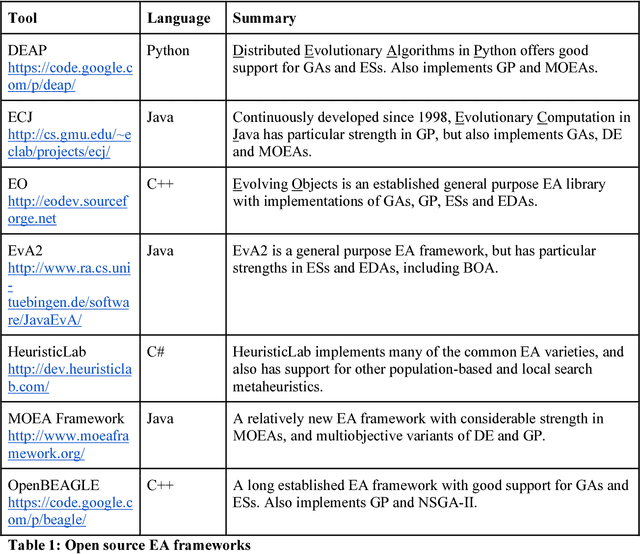Evolutionary Algorithms
Paper and Code
May 28, 2018
Evolutionary algorithms (EAs) are population-based metaheuristics, originally inspired by aspects of natural evolution. Modern varieties incorporate a broad mixture of search mechanisms, and tend to blend inspiration from nature with pragmatic engineering concerns; however, all EAs essentially operate by maintaining a population of potential solutions and in some way artificially 'evolving' that population over time. Particularly well-known categories of EAs include genetic algorithms (GAs), Genetic Programming (GP), and Evolution Strategies (ES). EAs have proven very successful in practical applications, particularly those requiring solutions to combinatorial problems. EAs are highly flexible and can be configured to address any optimization task, without the requirements for reformulation and/or simplification that would be needed for other techniques. However, this flexibility goes hand in hand with a cost: the tailoring of an EA's configuration and parameters, so as to provide robust performance for a given class of tasks, is often a complex and time-consuming process. This tailoring process is one of the many ongoing research areas associated with EAs.
 Add to Chrome
Add to Chrome Add to Firefox
Add to Firefox Add to Edge
Add to Edge